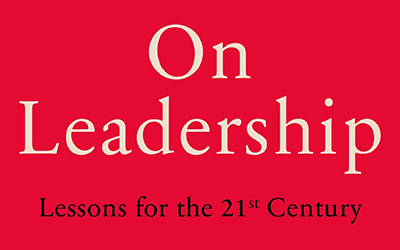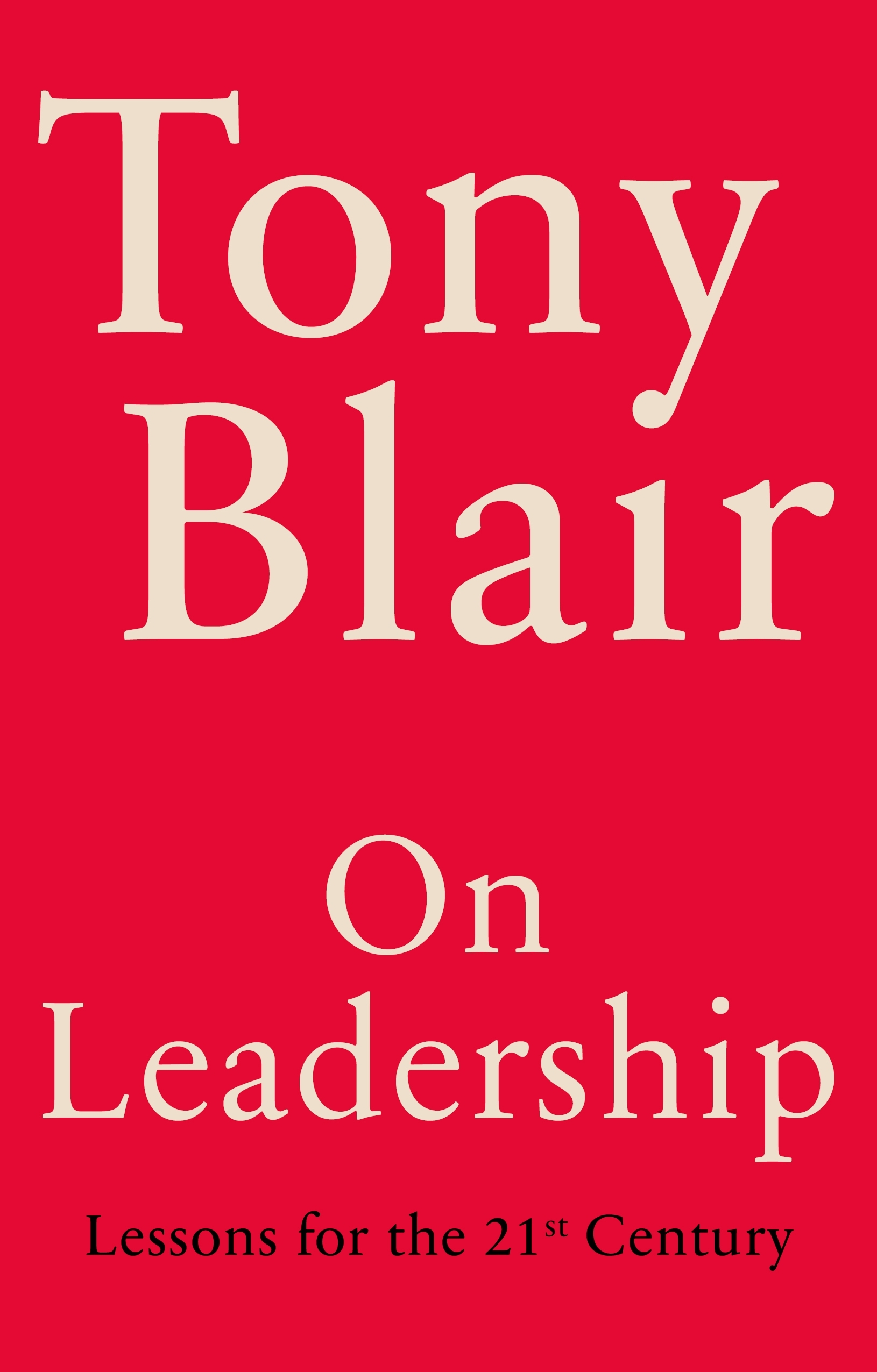
- Free Article: No
- Contents Category: Politics
- Review Article: Yes
- Article Title: Reverend Blair’s Camelot
- Article Subtitle: A stocking-filler for his flock
- Online Only: No
- Custom Highlight Text:
The satirical magazine Private Eye hit the mark with its characterisation of Tony Blair. He was the Rev. ARP Blair MA (Oxon), the pally, trendy, and earnest vicar of St Albion addressing his flock through the parish newsletter. The good vicar would frequently mangle or repurpose Scripture in service to his own agenda. It is delightful, therefore, to see glimpses of this memorable character up to his old tricks in this volume by @realtonyblair, decades after his departure from office (Blair was prime minister from 1997 to 2007). Did you know, for example, that Moses might have boosted his leadership performance by doing more to take control of the narrative of his journey?
- Featured Image (400px * 250px):

- Alt Tag (Featured Image): Gordon Pentland reviews ‘On Leadership: Lessons for the 21st century’ by Tony Blair
- Book 1 Title: On Leadership
- Book 1 Subtitle: Lessons for the 21st century
- Book 1 Biblio: Hutchinson Heinemann, $36.99 pb, 368 pp
- Book 1 Cover Small (400 x 600):

- Book 1 Cover (800 x 1200):

- Book 1 Readings Link: https://www.readings.com.au/product/9781529151527/on-leadership--tony-blair--2024--9781529151527#rac:jokjjzr6ly9m
Tony Blair likes journeys. One was the subtitle of his 2010 memoir, Tony Blair: A journey, which showcased the Blair literary style: a mix of breviloquent, staccato paragraphs (frequently eight or more to a page) and a studied chumminess in tone. Make no mistake that this aspiration to fill a page with epigrams is the authentic vox Antonii. It is deployed here to produce a genre-bending volume, part mirror to princes, part airport self-help book. Blair’s own journey since 2010 has been in building up his impressive non-profit Tony Blair Institute for Global Change (TBI), whose principal focus lies in providing strategic advice to governments and individuals on their leadership, which is, naturally ‘always a journey’. In many ways, On Leadership is a very long advertisement for the work of the TBI, Blair wearing the mantle of the experienced and sure-footed sherpa, guiding us along the trail.
The book is aimed, at least rhetorically, at a particular reader who is or wishes to be ‘the Leader’. The term is disconcertingly capitalised throughout, and Blair makes it clear that he is addressing himself to all would-be leaders, whether of a country, supermarket, or community centre. It is perhaps most obviously intended for those who dream of a future in politics, a stocking-filler for the aspirant prime minister, president, or tyrant in your life.
Blair does indicate his preference for democracy, but the title and content of chapter seven are unsettling: ‘Democracy or Not, it’s all about Delivery’. States like Singapore (also a favourite reference point for Blair’s former communications impresario, Alastair Campbell) are commended throughout. Such an outlook reflects the truly catholic approach of the TBI, whose well-publicised links in both taking money from and dispensing advice to states such as Saudi Arabia should cause no concern. The Saudi leadership are, after all, convinced deliverologists.
There is absolutely no doubt that Blair is in a good position to offer advice on leadership. He was, by any yardstick, an impactful leader. One crude measure is that he regularly haunts the upper reaches of prime ministerial top tens, usually losing out only to one or more of the big three of Winston Churchill, Clement Attlee, and Margaret Thatcher). His legacy was marred mostly by the poisonous run-up to, and aftermath of, the invasion of Iraq in 2003. In domestic terms, there is no doubting the achievements of transformational change of his party, of substantial reform to many aspects of Britain’s public services, and of a long tenure in the top job. For better or worse, no one doubts or can doubt his well-earned reputation as a change-maker.
Blair begins the book by claiming that what he did or did not achieve in government is not the purpose of this particular volume, which seeks, rather, to share the gleanings of a lifetime’s experiences. Near the end, he highlights, somewhat sourly, the importance of protecting one’s legacy as a leader, especially when out of power. It is hard not to see the three hundred or so pages in between as at least in part aimed at offering the kind of reputational vindication he disavows at the outset. Throughout the volume, many of the more controversial dimensions of Blair’s time in government furnish his parables: Public Private Partnerships; education and NHS reform; and Iraq. On the basis of his time in office and his continued growth since, Blair is now prepared to badge leadership as a science. He is also in the position, retrospectively, to offer scientific proof that he did the brave and ethically correct thing at the time. Between this book and Campbell’s use of the bully pulpit provided by the Rest Is Politics podcast, the Blair years are fast being refurbished by two of their central protagonists as a lost Camelot.
Most of the book is not directly engaged with specific and tangible issues. Blair does go into some detail about the current technological revolution (the Leader should grasp it as a tool with which to reimagine the state) and the changed global political landscape (the Leader should note that this is becoming more complex). Rather, the book is more geared to adducing generic lessons for leaders. Surely it will speak to that market. Blair was a restless moderniser, with staggering volumes of self-belief. Would-be leaders, from university vice-chancellors to local councillors, will salivate at things like dedicated ‘delivery units’, which the TBI seems to have franchised around the globe.
By those lights, the book is fine, and it will do fine. Perhaps the Northern Ireland peace process really can help you sort out an ongoing spat between Dave and Tina in Accounts. The advice this particular example furnishes – get other parties to talk first, to open up, and to engage in active listening – is wholly unobjectionable, but it is also hardly novel. And that is the weakness of the volume overall. I am not an avid reader of the genre, but I would suspect that there is not much in this book in terms of practical advice, sage though it might be, that couldn’t be found in dozens of other texts, from How to Win Friends and Influence People to The Art of the Deal. Whether you want your leadership homilies with a leavening of New Labour apologetics, an unabashedly globalist and technocratic worldview, and the inimitable chatty style of the vicar of St Albion is purely a matter of personal taste.


Comments powered by CComment